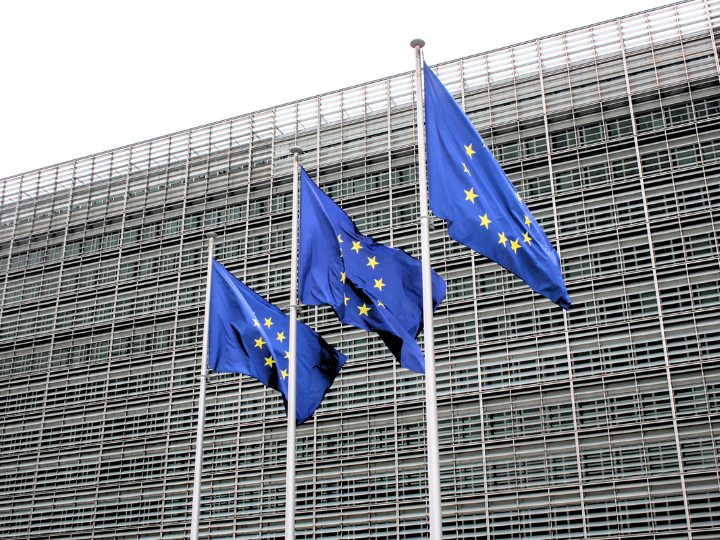by Giles Merritt*
How durable is the European Union? It’s not as solid as we like to think. There’s a fair chance that 2024 will end up in the history books as the sombre counterpoint to 1957, the year when the Treaty of Rome launched the ‘Great Adventure’ of Europe’s unification.
Next year sees the coming together of risk-laden deadlines and events that will determine the EU’s likely path over the crucially important coming decade. The European Parliament to be elected in June and a new Commission will face more daunting challenges than at any point in the EU’s history.
The prospect of further enlargement to bring in war-torn Ukraine along with a motley collection of Balkan states raises thorny questions about the streamlining of EU decision-taking. Controversy already rages over the degree to which member states, especially smaller ones, could be outvoted and forced to toe an EU line they find unacceptable. Talks about radical reforms would also take place against a background of growing resistance by Europe’s populists to greater EU integration.
So much for the more immediate troubles that will beset the EU from next year onwards. More alarming still are the wider pressures on Europe and its beleaguered process of political and economic integration. The EU’s ambition to become a major geopolitical force has yet to be realised, and is instead increasingly being dismissed by both established and emerging powers around the world as a fantasy.
The EU’s difficulties in fashioning clear foreign policies is only part of the problem. More damaging to Europe’s global image are its economic failures. Europeans are being overtaken in business and technology terms by the US and China, and their living standards are falling in relation to those of global competitors.
The contrast is stark with the closing decades of the 20th century. The 1980s and ’90s were fuelled by progress towards the single market and the euro, with the concept of a unified European economy engendering strong political support for deeper integration. Few policymakers doubted the problems of welding very different nation states into a muscular new global player, but there was a widely shared sense that Europe had entered a virtuous circle in which economic success bred political progress.
Such optimism is now a distant memory. The EU was robbed of momentum by underlying weaknesses like resistance to innovation and stagnating productivity, combined with external shocks like the 2008 worldwide financial crisis. The two decades of the 21st century have been doldrum years, and on the international political stage the EU has often been pushed to the side.
How deep-seated are Europe’s problems? Could they be so profound as to put in doubt the EU’s future as a geopolitical entity, leaving it as little more than a trading zone? A third of European respondents to a recent in-depth opinion poll believe the EU will fall apart within 20 years, a view echoed by a majority of respondents in China and Saudi Arabia.
This global survey on behalf of the European Council on Foreign Relations reflected widespread concerns that the international order is breaking up. As well as pondering the EU’s demise, many respondents said the US will no longer be a democracy by the 2040s. In both cases, a Russian victory against Ukraine was cited as the trigger for disruption and collapse.
Threats to the EU’s future go far deeper. The bloc has yet to fully digest its ‘Big Bang’ enlargement of 2004 and its failure to strengthen both its internal disciplines and external defences accordingly. Post-covid recovery policies have seen an alarming dilution of the EU’s Single Market rules, with hitherto Europe-minded Germany responsible for half of the current surge in state-aid subsidies to private companies.
This is not to say the European Union risks crumbling before our very eyes. Its policies and projects reach into almost every nook and cranny of Europeans’ lives. But it has been fighting a half-hearted and losing battle against nationalist far-right populist parties, and public opinion seems to be swinging away from the unquestioning support the EU once enjoyed.
Yet closer integration is self-evidently the only strategy that can protect shrinking, ageing Europe’s interests in an age of emerging geopolitical giants. That requires, however, bold and far-reaching reforms to the institutional structures that served a free trade zone well but are inadequate for a credible geopolitical actor.
Europe’s political leaders need to signal clearly that 2024 is a make or break year for the EU, and show willingness to embrace drastic change, uncomfortable though it will be. Looking beyond the EU’s borders at a world in turmoil, they should recall the words of Paul-Henri Spaak, the Belgian statesman who was one of the EU’s founding fathers. “There are two types of state in Europe,” he remarked almost seventy years ago, “small states and states that have not yet realised they are small.”
*Founder of Friends of Europe
**first published in: Friendsofeurope.org




 By: N. Peter Kramer
By: N. Peter Kramer
